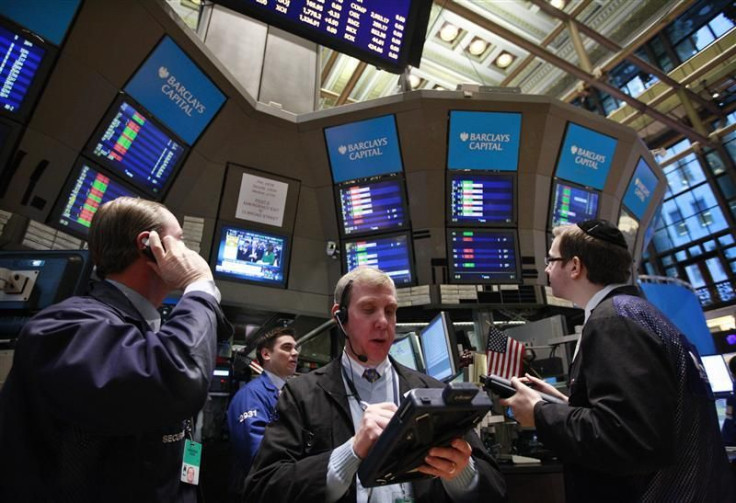Stock Market Outlook: Barton Biggs Predicts 5%-7% Correction

Hedge fund manager Barton Biggs's stock market outlook has turned decidedly more bearish than it was just a few weeks ago.
While he still believes U.S. stocks will head higher in coming months, Biggs is concerned about a near-term pullback as the euro zone's debt crisis intensifies and hopes for a new round of quantitative easing by the Federal Reserve dim.
Biggs told Bloomberg Television he has cut his long exposure to U.S. stocks, adding that he may further trim his holdings and sell short the S&P 500 index to hedge against an overall market decline.
He thinks the coming correction could take the market down 5 percent to 7 percent.
Biggs, whose Traxis Partners manages over $1 billion, is worried about Europe's deepening recession, describing new data on German industrial output disquieting.
He fears Spain may be the next victim of the euro zone sovereign-debt crisis, as short-sellers target the country's bond and stock markets.
This week, yields on 10-year Spanish bonds have risen 0.4 percent -- their highest weekly jump since early January. This has driven up Spain's cost of borrowing and hammered stocks of Spanish banks. Banco Santander SA (NYSE: STD), for example, has fallen more than 7 percent this week.
Biggs is also worried about rhetoric coming out of the Federal Reserve, which dampened hopes of another round of quantitative easing, a policy of bond buying that injects liquidity into financial markets.
The president of the Fed's Dallas branch, Richard Fisher, told CNBC this week that it wouldn't be necessary to conduct a third round of quantitative easing unless the U.S. economy is facing another financial crisis.
Meanwhile, Atlanta Fed President Dennis Lockhart told Bloomberg Radio that he wouldn't endorse more easing unless there are severe circumstances that warrant it.
Minutes from the March meeting of the Fed's Federal Open Market Committee showed that fewer members of the monetary-policy-setting panel considered easing necessary than felt that way at the January meeting.
Biggs said the market has hoped to see more liquidity. His tone has changed markedly since March 20, when he was extremely bullish and 90 percent net long stocks, citing the large amount of cash that hasn't poured into equities. He reasoned then that with fixed-income yields at historic lows, major investors would soon switch from bonds to stocks and therefore push up prices of the latter.
© Copyright IBTimes 2024. All rights reserved.











